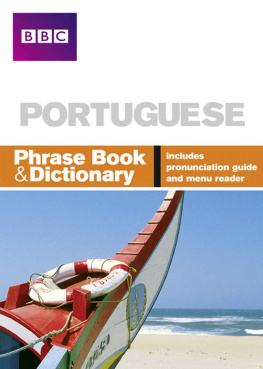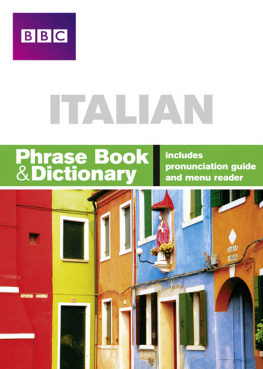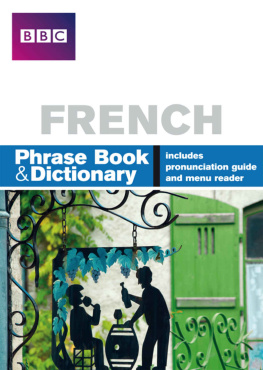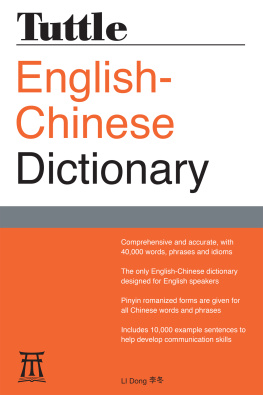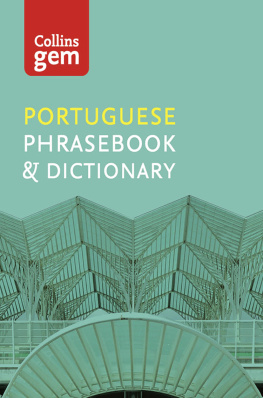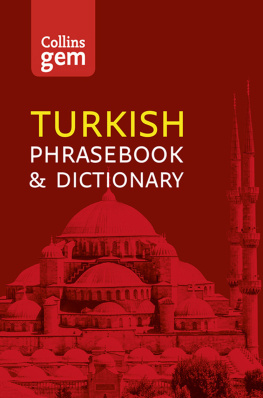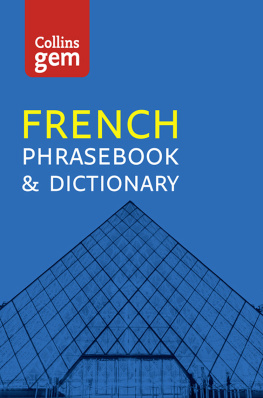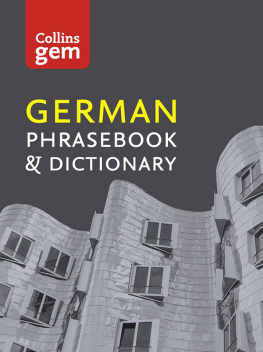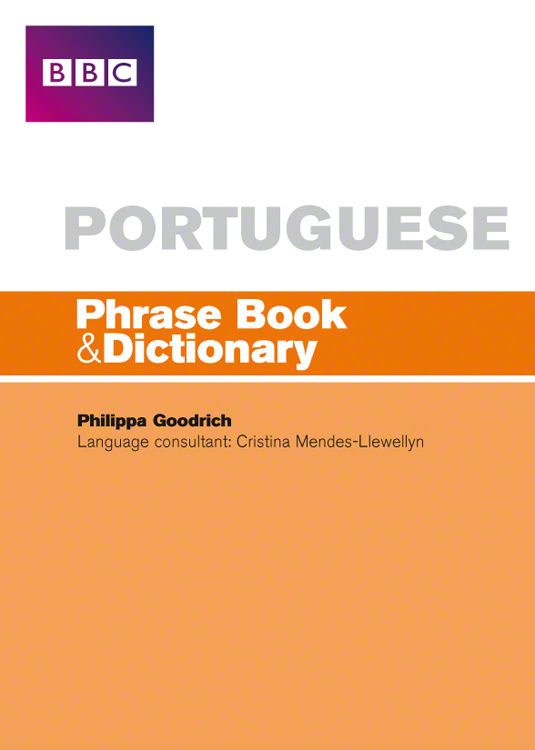Portuguese Phrase Book & Dictionary Published by BBC Active, an imprint of Educational Publishers LLP, part of the Pearson Education Group, Edinburgh Gate, Harlow, Essex CM20 2JE. Print version Philippa Goodrich and BBC Worldwide Ltd 2005
ePub version Philippa Goodrich and Educational Publishers LLP 2013
Illustrations copyright Joanna Kerr @ New Division 2005
BBC logo BBC 1996. BBC and BBC ACTIVE are trademarks of the British Broadcasting Corporation. The right of Philippa Goodrich to be identified as author of this work has been asserted by her in accordance with the Copyright, Designs and Patents Act, 1988. All rights reserved. No part of this publication may be reproduced, stored in a retrieval system or transmitted in any form or by any means electronic, mechanical, photocopying, recording, or otherwise, without either the prior written permission of the publishers and copyright owners or a licence permitting restricted copying in the United Kingdom issued by the Copyright Licensing Agency Ltd., Saffron House, 610 Kirby Street, London EC1N 8TS.
Pearson accepts no responsibility for the content on any website for which a link is provided in this title, or for any use of personal data by the third party operating such a website. The links are provided as is with no warranty, express or implied, for the information provided within them. ISBN: 978-1-4066-7624-2 Managing Editor: Joanna Kirby
Project Editor: Josie Frame
Index Editor: Paula Peebles
Designer: Elizabeth Burns
Concept design: Pentacor Book Design
Cover design: Two Associates
Cover photo copyright Bo Zaunders/CORBIS
ePub conversion: Reality Premedia www.bbcactivelanguages.com
how to use this book
This book is divided into colour-coded sections to help you find the language you need as quickly as possible. You can also refer to the . Along with travel and language tips, each section contains:
 | YOU MAY WANT TO SAY
language youll need for every situation |
 | YOU MAY SEE
words and phrases youll see on signs or in print |
 | YOU MAY HEAR questions, instructions or information people may ask or give you |
Youll find , a list of basic, all-purpose phrases to help you start communicating straight away. Many of the phrases can be adapted by simply using another word from the dictionary.
For instance, take the question Onde o aeroporto? (Where is the airport?), if you want to know where the station is, just substitute a estao (station) for o aeroporto to give Onde a estao? . The . We welcome any comments or suggestions about this book, but in the meantime, have a good trip Boa viagem!
| It may be helpful to view tabular content in landscape mode and in some instances reduce the font size. |
contents
pronunciation guide
pronunciation
The best way to learn Portuguese pronunciation is to listen to it as often as possible and to repeat words or sentences aloud. Dont worry about having a perfect accent; just concentrate on putting the stress in the correct place.
stress
Generally, Portuguese words ending in a vowel are stressed on the last but one syllable: fa
lo (I speak), e
la (she),
bo ni
to (beautiful) and words ending in a consonant have the stress on the last syllable:
telefo nar (to telephone),
ho tel (hotel).
vowels
Vowels which are stressed are consistent but unstressed vowels almost disappear:
| PORTUGUESE VOWELS | APPROX ENGLISH EQUIVALENT | SHOWN IN BOOK AS | EXAMPLE | |
|---|
| a (stressed) | a in bat | a | falo | faloo |
| a (unstressed) | a in about | ah | dia | deeah |
| e (stressed) | e in bell | e | hotel | otel |
| e in grey | h | dizer | deezhr |
| e (unstressed) | u in umbrella | u | americano | ahmuricahno |
| e (unstressed, at the end of a word) | hardly pronounced | come | kom |
| i | ee in feet | ee | vinte | veent |
| o (stressed) | o in not | o | ns | nosh |
| au in autumn | oh | outro | ohtroo |
| o (unstressed) | oo in look | oo | poder | poodhr |
| o (unstressed, at the end of a word) | hardly pronounced | passado | pahssad |
| u | oo in look | oo | tudo | tood |
nasal sounds
Nasal sounds are pronounced through the mouth and nose at the same time and always have a til () over the vowel: so , pe , me .
vowels
Vowels which are stressed are consistent but unstressed vowels almost disappear:
| PORTUGUESE VOWELS | APPROX ENGLISH EQUIVALENT | SHOWN IN BOOK AS | EXAMPLE | |
|---|
| a (stressed) | a in bat | a | falo | faloo |
| a (unstressed) | a in about | ah | dia | deeah |
| e (stressed) | e in bell | e | hotel | otel |
| e in grey | h | dizer | deezhr |
| e (unstressed) | u in umbrella | u | americano | ahmuricahno |
| e (unstressed, at the end of a word) | hardly pronounced | come | kom |
| i | ee in feet | ee | vinte | veent |
| o (stressed) | o in not | o | ns | nosh |
| au in autumn | oh | outro | ohtroo |
| o (unstressed) | oo in look | oo | poder | poodhr |
| o (unstressed, at the end of a word) | hardly pronounced | passado | pahssad |
| u | oo in look | oo | tudo | tood |
nasal sounds
Nasal sounds are pronounced through the mouth and nose at the same time and always have a til () over the vowel: so , pe , me .
Nasal sounds also appear before or after an m or n : bom , viagens . A nasal sound is represented in this book by a til () over the vowel or an : me , mhee viagens , veeajeesh bom , boh
consonants
Most Portuguese consonants are similar to their English equivalents. Exceptions:
| PORTUGUESE CONSONANTS | APPROX ENGLISH EQUIVALENT | SHOWN IN BOOK AS | EXAMPLE | |
|---|
| c (+ e or i ) | s in see | s | cem | seh |

